Editor’s Note
2018 was an exciting year for Asia Pacific Pathways to Progress. Having successfully established bona fides in the initial years through its flagship China Program, this year was a period of expansion as well as deepening.
We launched three new programs while sustaining the attention to issues in Philippines-China relations. The new programs were on Regional Security Architecture, Regional Integration and Connectivity, and Maritime Development and Security. From the four original research fellows, we grew our roster to ten, among them very distinguished senior scholars as well as up-and-coming young analysts. Program conveners were appointed to help oversee the new thrusts.
From publishing brief but punchy and topical op-eds – available on the website as well as the printed collection Strategic Insight – Pathways to Progress also began to produce more in-depth Working Papers and Policy Papers, exploring important issues in Philippine foreign policy. Our information archive of regional events and trends that shape the context of our international relations has generated what we chose to call Chronalysis – a quarterly round-up of important developments and their evolving implications for the Philippines.
The forums and conferences we convened continued to provide bigger and better opportunities for building epistemic networks with and among foreign policy stakeholders. We partnered with government, with the private sector, with media and with the academe – both national and international -- to achieve shared goals. Meanwhile, our fellows and experts shared their ideas and observations not only in classrooms or in closed-door conference sessions, but by addressing the general public via the mass media.
Our website continues to attract users, particularly in the target range of ages 18-24 (including university students) and 25-34 (presumably including professional researchers, policy analysts, and young technocrats), with the Philippines (over 70%), United States, China, Australia and Singapore being the top five countries with the largest number of pageviews.
This year, we established our first formal partnership agreements with prominent think tanks, including the Shanghai Institute for International Studies, and joined the ASEAN-Institutes for Strategic and International Studies as its Philippine member.
Following a rather intense year, 2018 came to a close with the transfer of our research offices to Katipunan Avenue, the academic hub of Quezon City. Do visit us in our new location at One Burgundy Plaza, where we can offer you a cup of coffee or tea, and an unlimited supply of fresh ideas and lively conversation on where the Philippines stands (or falls) in regional and international affairs.
Ackowledgment: APPFI is grateful for the support of its donors and partners for 2018: Amb. Carlos Chan/Liwayway Marketing Corp.; Mr. Edgar (Injap) Sia; Mr. Henry Lim; Sterling Paper Products Enterprises; Mr. Jeffrey Ng; Astoria Plaza Hotel; Mr Alfonso Uy; Embassy of Australia; Griffith Asia Institute; and friends who requested not to be named.
News & Events
Pathways is ASEAN-ISIS Chair for 2019

Photo from Myanmar ISIS' Facebook Account
Asia Pacific Pathways to Progress Foundation, Inc. was honored to accept the Chairmanship of the ASEAN Institutes for Strategic and International Studies (ASEAN-ISIS), in a simple handover ceremony organized by Myanmar ISIS. ASEAN-ISIS is a longstanding network of think tanks across Southeast Asia that has actively contributed to policy-oriented research and dialogues on regional affairs.
Philippine academics, SASS exchange views on PH-China relations and the BRI
A group of scholars from the Shanghai Academy of Social Sciences joined Philippine academics for a discussion on Philippine-China economic and cultural relations, the Belt and Road Initiative, and trends in ASEAN integration.
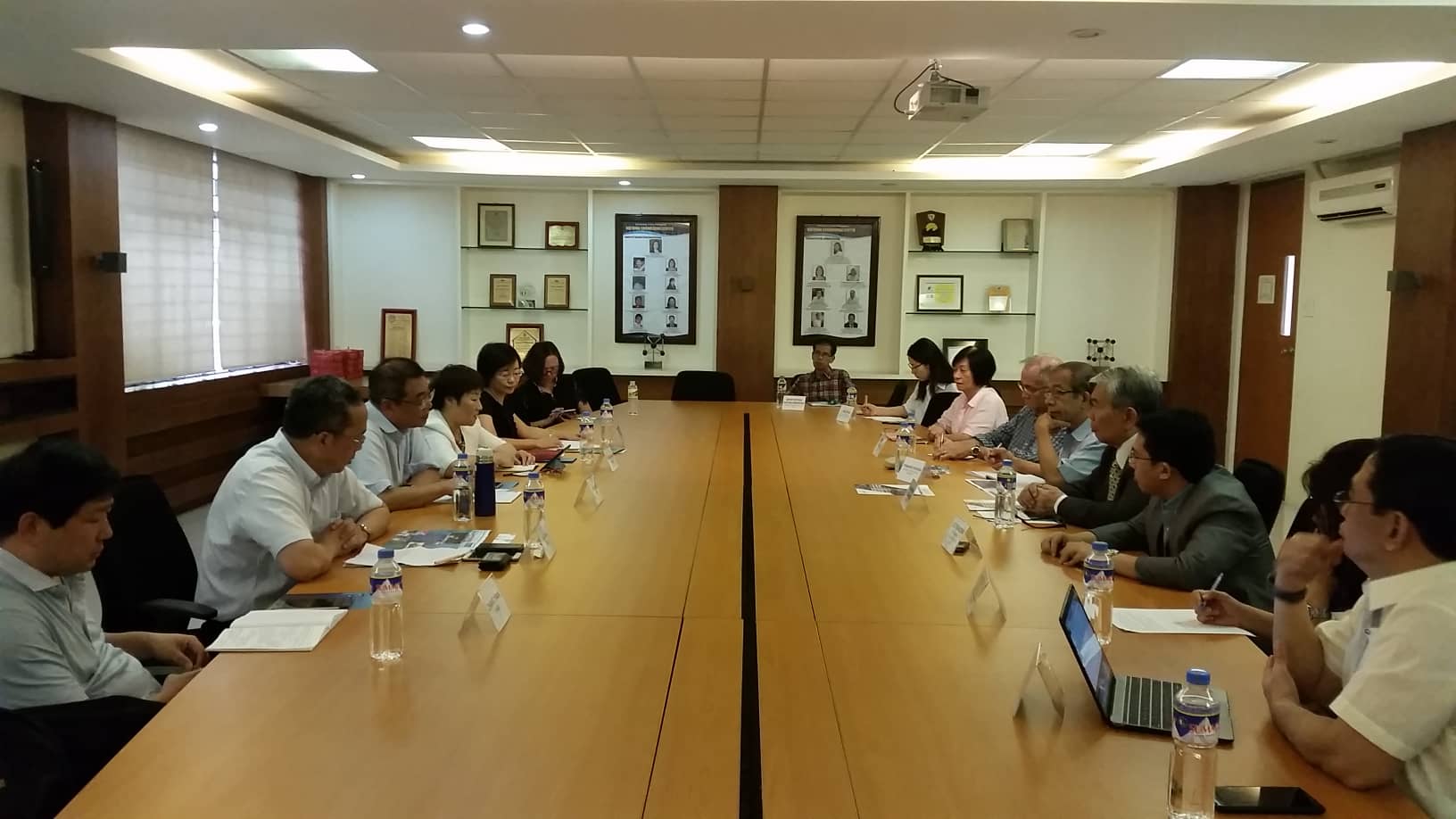
Coronel-Ferrer and Baviera speak at Asia Mediation Retreat in Beijing
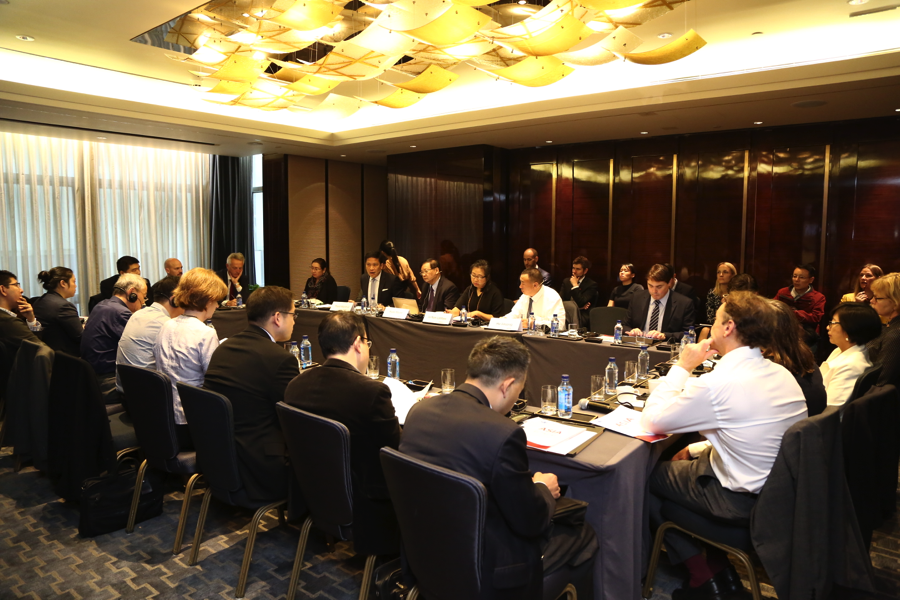
Photo from China Institute of International Studies
Pathways President Aileen Baviera and Trustee Miriam Coronel-Ferrer delivered presentations during the Asia Mediation Retreat in Beijing hosted by the China Institute of International Studies, the HD Centre for Humanitarian Dialogue, and the Royal Norwegian Ministry of Foreign Affairs.
Pathways takes part in historic ASEAN-Korea Track II Conference
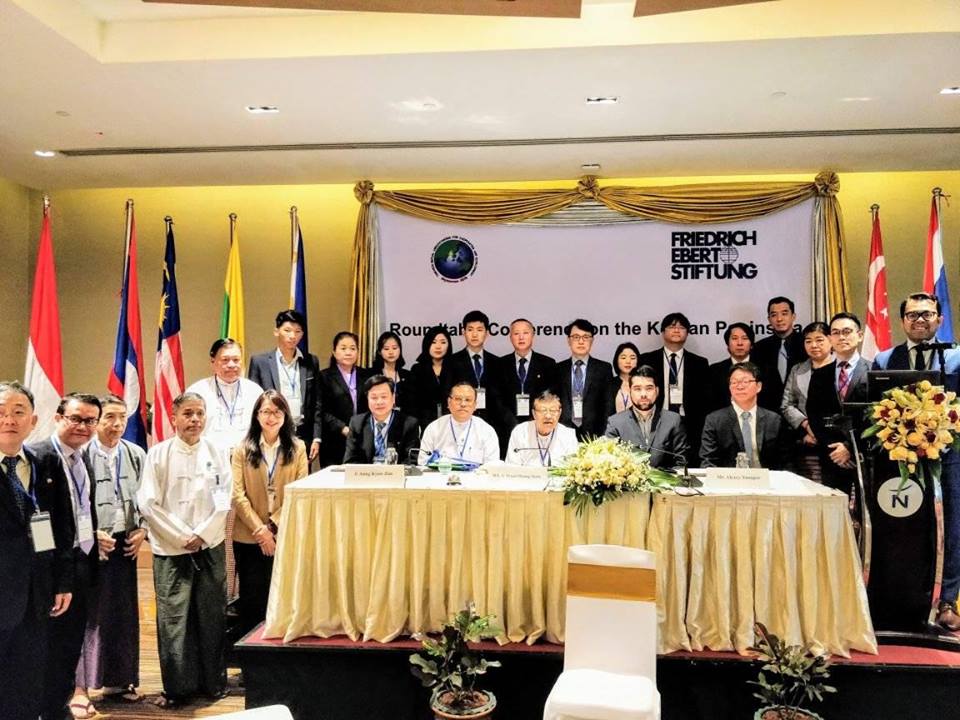
Asia-Pacific Pathways to Progress Foundation took part in a historic roundtable conference on the Korean Peninsula that gathered think-tank representatives from the two Koreas and ASEAN countries. The conference was held on December 13, 2018 at Novotel Yangon Max Hotel in Yangon. It was organized by the Myanmar Institute for Strategic and International Studies (MISIS) and the Friedrich Ebert Stiftung Myanmar.
Foreign Policy Workshop convened by Konrad Adenauer Stiftung
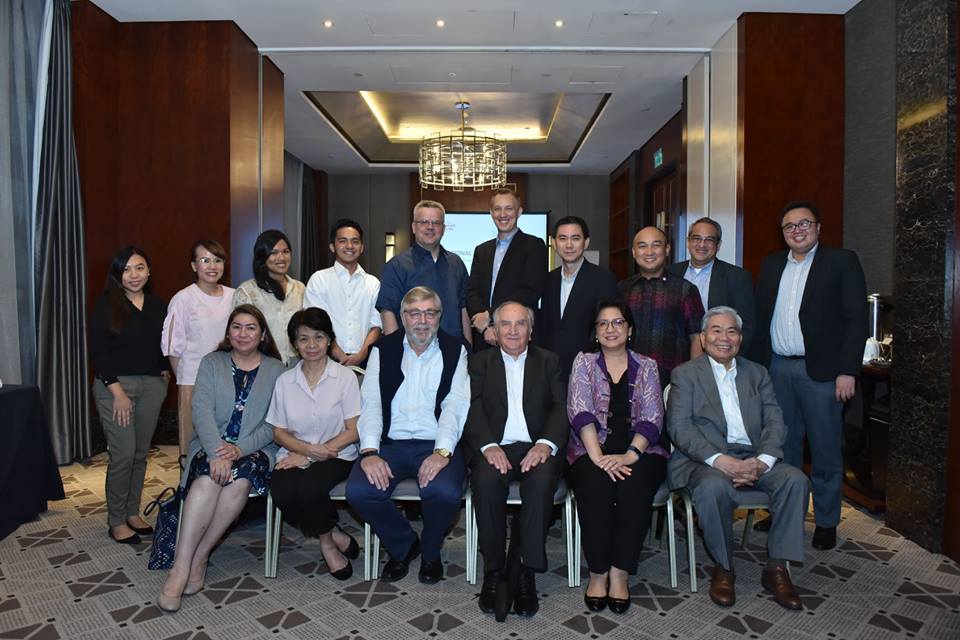
Photo courtesy of Konrad Adenauer Stiftung
The Konrad Adenauer Stiftung invited a number of Pathways to Progress fellows and trustees to participate in a closed-door workshop where Philippine and international experts came together to discuss Philippine and ASEAN foreign policy. This was held on November 24 at the Makati Diamond Residences. Among the Pathways representatives were Trustees Raphael Lotilla and Wilfrido Villacorta, President Aileen Baviera, and fellows Herman Kraft and Julio Amador . The workshop was led by KAS country director for the Philippines Dr Stefan Jost.
Russia-Asia Cooperation Discussed at Kuala Lumpur Conference
The Valdai Discussion Club was established in Russia in 2004. Since then, its website indicates that more than 1,000 representatives of the international scholarly community from 71 countries have taken part in the Club’s activities.
As part of its Asia program, it co-organized a conference with the Malaysian Institute for Strategic and International Studies on November 21 & 22, to which think tanks and organizations from Malaysia, China, India, Korea, Japan, Myanmar, Vietnam, and the Philippines, among others, were invited. Pathways to Progress’s Aileen Baviera was the sole representative from the Philippines.
Prospects for ASEAN-UK Relations Post-Brexit
The Singapore Institute for International Relations, in cooperation with U.K.’s Royal Institute of International Affairs (better known as Chatham House), hosted the UK-ASEAN Dialogue for Cooperation and Collaboration Post-Brexit at the Eden Hall, the British High Commissioner’s residence in Singapore, last November 8. The EU Centre in Singapore was also involved in the dialogue.
Pathways joins ASEAN, China think tanks in regional issues discussions
Program Convenor Dr. Aaron Jed Rabena and Research Associate Grace Guiang represented Pathways at the 5th ASEAN-China Think Tank Dialogue on 25 October 2018 in Beijing.
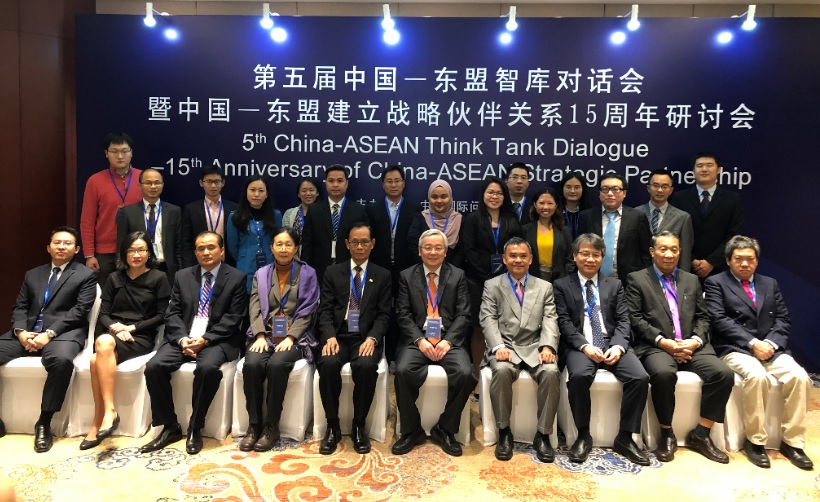
This workshop convened experts from ASEAN countries and China to discuss issues ranging from the Asia Pacific situation against the background of the adjustment of big power relations, synergizing the Belt & Road Initiative and ASEAN’s development strategies, new fields and prospects for bilateral cooperation, and cooperation to achieve sustainable security in the region.
Pathways Experts join Workshop on Asian Order
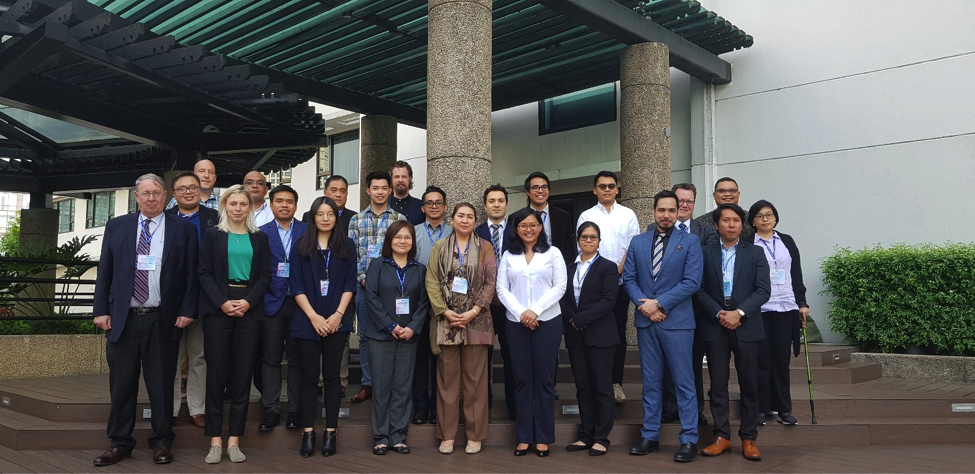
Pathways president, Dr. Aileen Baviera, with fellows and other experts participated in the workshop on imagining a new Asian order.
Several experts from APPFI actively participated in the experts’ scenario-building workshop on “Imagining a New Asian Order 2020 to 2035" held on 27-28 October 2018 in Makati City. Led by Pathways president, Dr. Aileen Baviera, research fellows Dr. Charmaine Misalucha-Willoughby, Dr. Aries Arugay, Mr. Julio S. Amador III, Ms. Diane Faye Despi, and Mr. Lucio Pitlo served as speakers or discussants during the workshop.
Pathways Fellows Participate in 4th International Symposium on Asian Development Studies
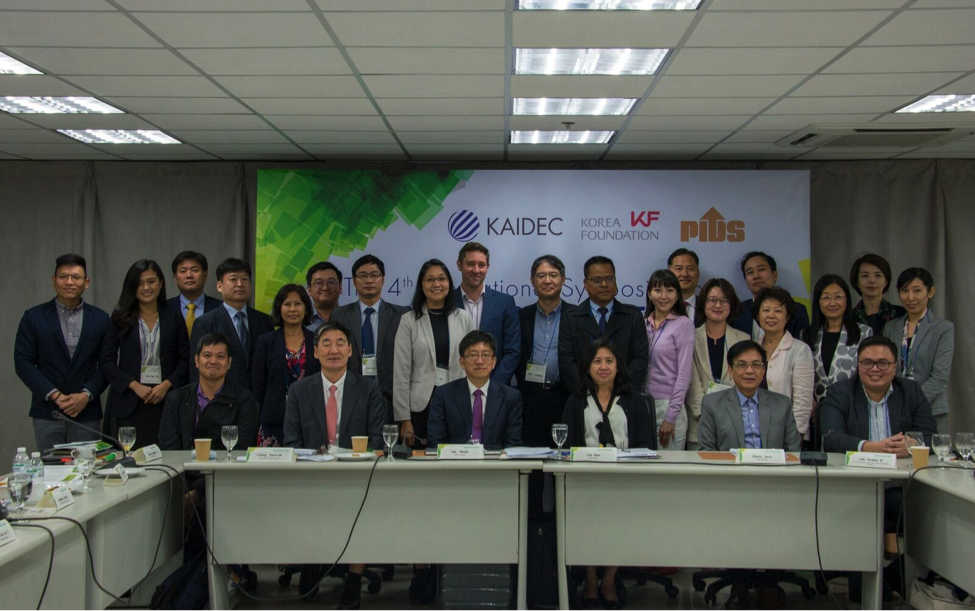
Dr. Gilberto Llanto and Mr. Julio S. Amador III with PIDS President Dr. Celia Reyes and Dr. Heejin Lee, president of KAIDEC (Photo by PIDS).
Research fellows, Dr Gilberto Llanto and Mr. Julio S. Amador III, joined international experts from South Korea, India, China, Japan, Khazakstan, and ASEAN member-states in the 4th International Symposium on Asian Development Studies to discuss development cooperation in ASEAN. The symposium was held on the 25th to the 26th of October, 2018 at the Philippine Institute for Development Studies (PIDS). Mr. Amador chaired the first session on non-ASEAN actors for ASEAN’s development where Dr. Llanto served as discussant of the five research studies presented. The event was organized by the Korea Association of International Development and Cooperation (KAIDEC) and the PIDS, with the support of the Korea Foundation.
APPFI attends ASEAN-Australia-New Zealand Dialogue in Kuala Lumpur

Research Fellow Dr. Charmaine Willoughby attended the 11th ASEAN-Australia-New Zealand Dialogue on behalf of APPFI. The conversations focused on China’s soft power influences in the region, strategies to manage great power relations and overcome barriers to trade, and democracy in Southeast Asia. The Dialogue also featured perspectives of young delegates and scholars on the trilateral relationship.
APPFI attends maritime cooperation workshop in Seoul
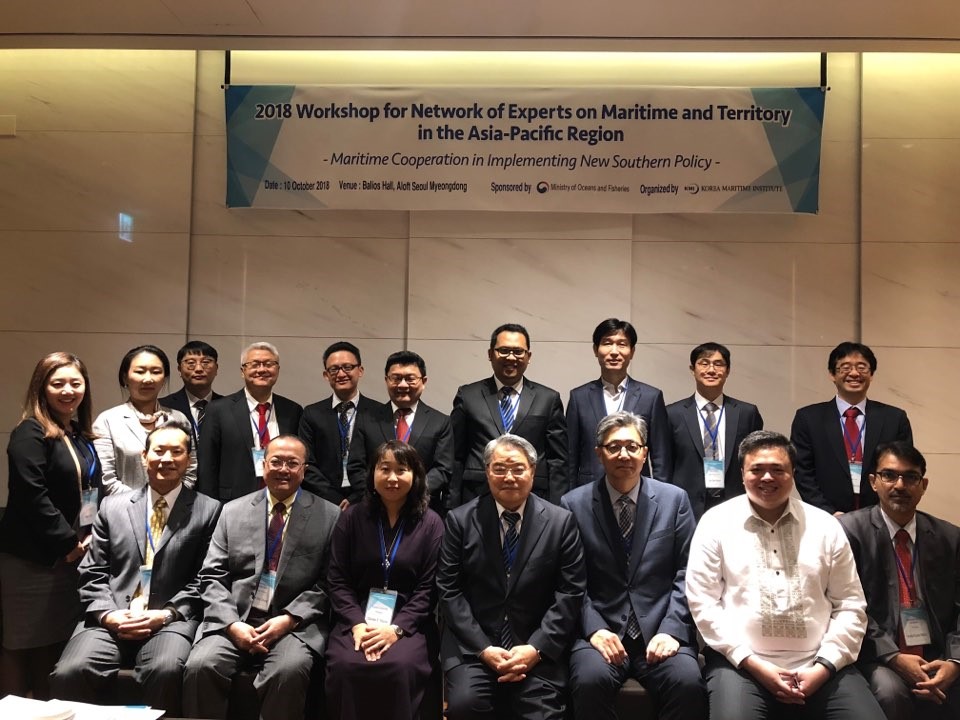
Participants and presenters at the 2018 workshop for network of experts on maritime and Territory in the Asia-Pacific region.
Mr. Julio S. Amador III, Regional Security Architecture Program Convener and Fellow, attended and presented at the 2018 workshop for Network of Experts on Maritime and Territory in the Asia-Pacific Region in behalf of APPFI. With the theme “Maritime Cooperation in Implementing New Southern Policy”, the workshop was attended by experts and specialists coming Indonesia, Malaysia, Philippines, Vietnam, Singapore, Japan, South Korea, and India.
Commentaries
The Balangiga bells and the Philippines-US alliance
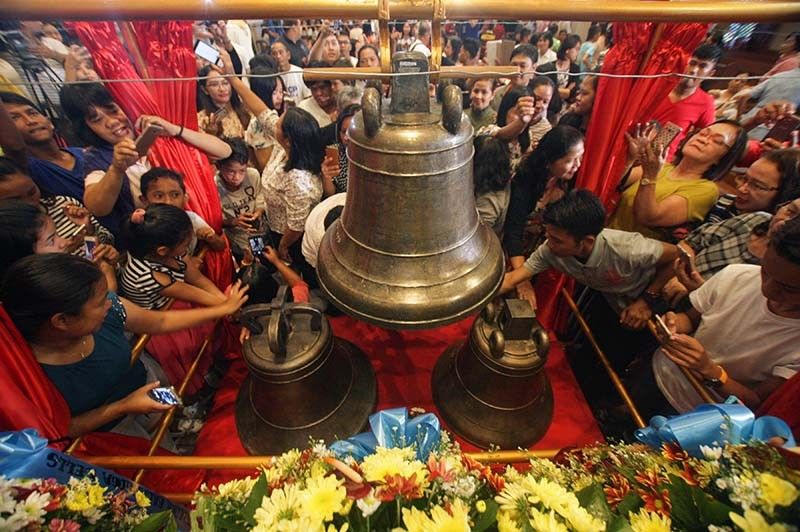
The Balangiga Bells. File Photo from The Star/Krisjohn Rosales
In his speech marking the return of the Balangiga bells, United States defense secretary, Jim Mattis emphasized the need to deepen the “respect” between the two allies, the Philippines and the United States. Seen as either war booty or as relics of a bloody period, the return of the bells mark an end to a heavily disputed period between the allied countries. President Rodrigo Duterte of the Philippines has used the bells to needle the Americans, going even so far as asking for their return in his State of the Nation Address in 2017.
What to make of the Philippines-China “Comprehensive Strategic Cooperation”?
President Xi Jinping’s two-day state visit to Manila (November 20-21) was considered a milestone in Philippines-China relations. While depth still requires more work, the increasing breadth of the ties was demonstrated with 29 cooperation documents signed ranging from trade, investment and economic cooperation, infrastructure, agriculture, finance, information and communications technology, education, and culture. This provides much of the substance behind the elevation of the ties to a “Comprehensive Strategic Cooperation.” The visit reinforced continuity, downplaying of disputes and expansion of practical areas of cooperation. It also saw both countries’ attempt to remedy setbacks in some earlier agreed projects.
Hanoi: Navigating the Risky Waters of the South China Sea
While Hanoi appreciated important achievements in the concerted efforts to manage the South China Sea issue, especially with the adoption of a draft negotiation text on the Code of Conduct of Parties in the South China Sea at the 51st ASEAN Ministerial Meeting, the situation in the disputed waters is still characterized by complexity, uncertainty, and unpredictability. Addressing Vietnam’s 30th Diplomatic Conference in August 2018, General Secretary of the Communist Party of Vietnam Nguyen Phu Trong noted that rapid and complex changes with potential unforeseeable risks in the South China Sea have posed new challenges to the country’s dual tasks of safeguarding national sovereignty, territorial integrity, and jurisdiction rights in line with international law, while preserving a peaceful and stable environment in the region.
Indomalphi: From state actions to ASEAN maritime security regime
The launching of Indomalphi Trilateral Maritime Patrol (TMP) in July 2017 was a celebrated milestone on security cooperation among the three neighbors Indonesia, Malaysia, and the Philippines. Patterned from the Malacca Strait Patrol (MSP) such that it has also three components, the maritime patrol was followed shortly by introduction of air patrol and intelligence sharing. Since then, meetings and patrols have periodically convened, with each party rotationally taking turns in hosting the operations.

File photo: Indonesian Defense Minister Ryamizard Ryacudu, Malaysian Defense Minister Hishammuddin Hussein, and Philippine Defense Minister Delfin Lorenzana at the launch of the three-state air patrol in Malaysia in October 2017 | aktual.com
Taiwan: The Linchpin of US-China Relations

Photo Source: Time/Bloomberg/Getty Images
Cross-Strait Relations or China-Taiwan relations is one of the most complex and controversial issues in today’s international relations. The two entities, while having a shared heritage and language, have very different aspirations for their futures. For China, Taiwan is considered a wayward province that it needs to reunite with, by force if necessary. Taiwan, on the other hand, increasingly considers itself as a sovereign state capable of making sovereign decisions and participating in international affairs.
Locating the Philippines in Russia’s Turn to the East Strategy: Opportunities and Considerations
Unlike Cambodia, Laos, Myanmar, and Vietnam (CLMV) where Russia had made solid improvements and contributed to deeper economic and political cooperation, the Philippines is viewed to be opposite among its neighbors, in terms of the breadth and depth of bilateral relations with Russia – as the priorities are directed with its long-term ally, the United States. The enduring partnership and alliance between the Philippines and the United States showed reciprocity and gained mutual benefits in the areas of education, military and defense, humanitarian assistance, people-to-people exchanges, and trade. Because of this, some states are reluctant in engaging with the Philippines. This article provides a broader analysis by locating the place of the Philippines in Russia’s geopolitical and economic strategy in the Far East, which encompasses the greater Asia-Pacific region. Possible opportunities and considerations are also included in this article.
American Security Funding for Southeast Asia: US Motives and Implications for the Philippines
United States Secretary of State Michael Pompeo announced that US$ 300 Million will be allocated for the Indo-Pacific region, as part of their commitment to advancing regional security. This assistance includes $290.5 million in Foreign Military Financing (FMF) to strengthen maritime security, humanitarian assistance/disaster relief, and peacekeeping capabilities, and $8.5 million in International Narcotics and Law Enforcement (INCLE) funds to counter transnational crime. The security assistance funding will cover projects in Bangladesh, Indonesia, Mongolia, Nepal, the Pacific Islands, the Philippines, Sri Lanka, Vietnam and others.
Will soft power save the rules-based order?
Since the aftermath of World War II, international politics has been governed by this so-called rules-based order.
It is a set of rules, norms and institutions which has guided how states behave and interact with one another. Founded by western powers led by the United States, the rules-based order enshrined in the United Nations Charter affirmed the sovereignty of states, encouraged cooperation, and advocated for peaceful resolution of conflict.
